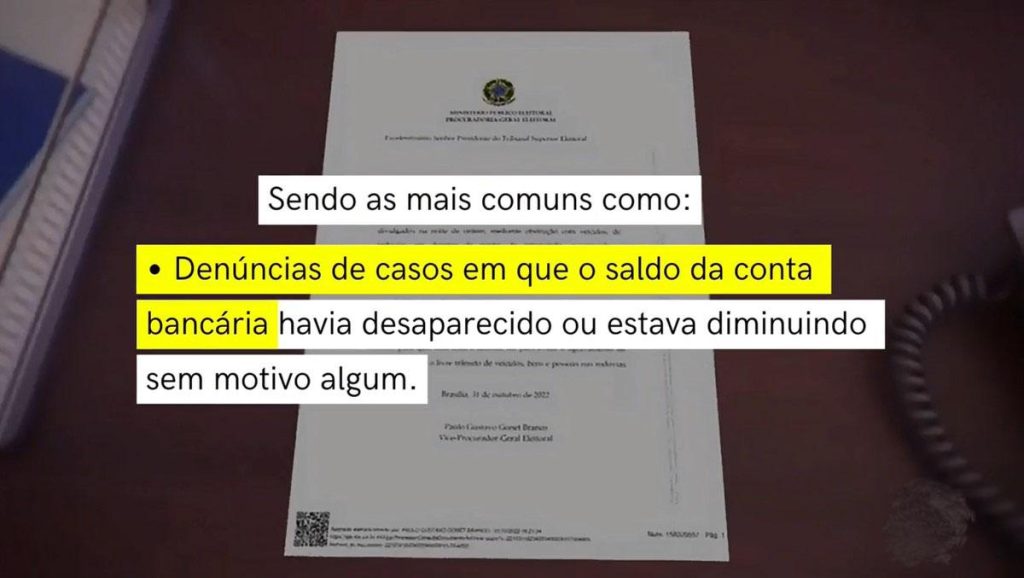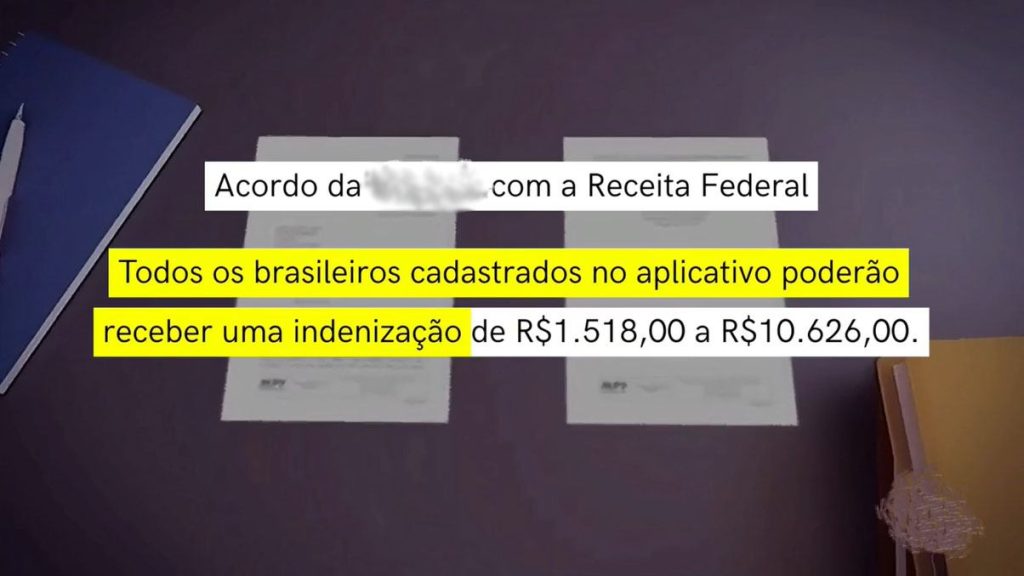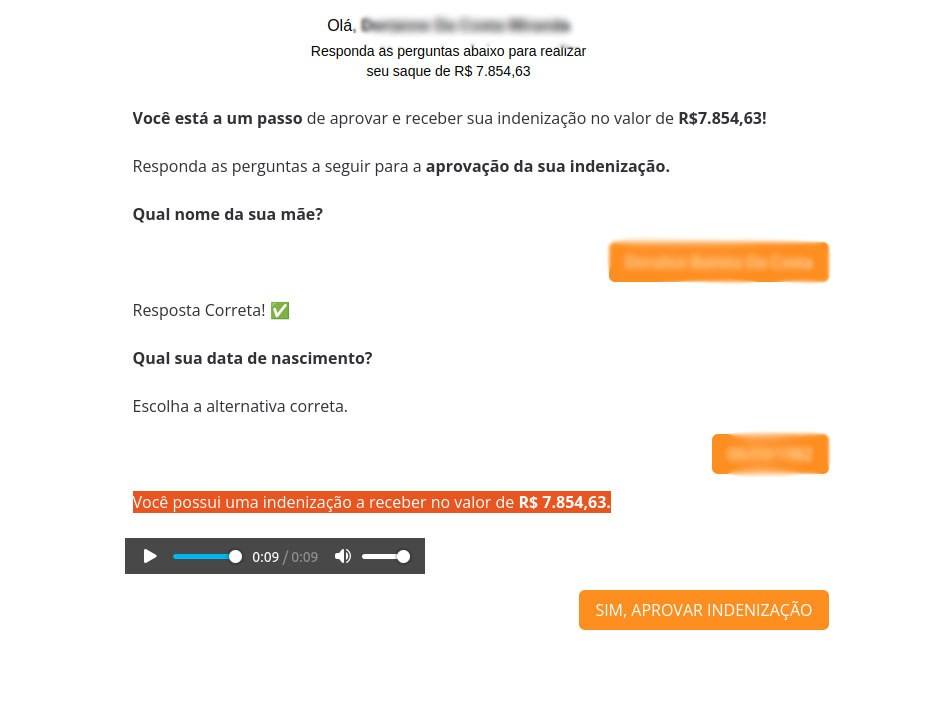Scammers are promising compensation from a bank | Kaspersky official blog
Scammers just can’t stop playing Santa: one day it’s free Telegram subscriptions; another it’s cryptocurrency. This new scam keeps things simple: they’re offering money right off the bat — or, more accurately, sharing a supposedly legal way for you to cash in.
The scammers created a two-minute video in which journ-AI-lists and a celebrity spin tall tales: “Everyone can get compensation. You just need to…” Read on to find out what the scammers are instructing their victims to do, and about the bait they’re using to lure unsuspecting folks into their trap.
The scammers’ modus operandi
This campaign saw scammers create phishing websites to host the video. You won’t find it on YouTube or any other video hosting site (for your safety, we won’t share it here either), because this kind of AI-generated content tends to be taken down in short order. It’s much harder to deal with scam websites — especially when links are distributed via email and messaging apps.
Now for the most interesting part: the video. It looks just like a brand-new Brazilian news segment, but there’s a twist. The news is completely fake — and was “shot” without the journalists’ permission. The scammers used a real news broadcast as the base, overlaying it with AI-generated voiceover and syncing the lip movements to match the new script. In it, AI-generated clones of real journalists weigh in on “violations” by one of the country’s leading banks.
- “Clients see their balances shrink for no reason — or even get wiped out entirely”
- “Accounts are being unjustly frozen”
- “Interest rates on loans are being inflated”
Once the stage is set, another AI clone takes over. Here, the scammers use the same approach as with the journalists: real video footage, AI-generated voiceover, and lip-syncing to match the new script. An AI-generated copy of a celebrity in Brazil delivers a fiery speech: “For months on end, the bank has repeatedly violated regulations, and now we’re taking decisive, uncompromising action. From this point forward, the bank will be allowed to operate in Brazil only if it pays compensation to every citizen, in the amounts specified.” And — what do you know? — bingo! Suddenly, every Brazilian is entitled to a one-time payout ranging from 1518 to 10 626 Brazilian reals (approximately US$250–2000).
Then the journalist clones return to the screen, supposedly showing a social media post from the bank that “confirms” the statement. But how do you actually cash in? Well, an AI-generated voiceover, set against a video tutorial, explains that all Brazilians need to visit a website “created by the tax authority and the bank”, enter their CPF (the Brazilian taxpayer ID), and calculate their personal compensation amount.
The setup is clear: as soon as the victim finishes watching the video, they’re funneled straight to a specially crafted phishing website, where a quick identity check awaits.
- “What’s your mother’s name?”
- “What’s your date of birth?”
- “You have an overdue insurance payment in the amount of…”
Answer all the questions correctly (not that it really matters — you can type whatever you like), and you’re through to the final stage. You’re told the transaction is practically on its way and the money is about to hit your account, but there’s a snag. You’re required to pay three taxes: a road tax, a transfer tax, and a receipt tax, totaling just 55 Brazilian reals (around $10) — a mere pittance compared to the promised windfall of 7854 reals (roughly $1400). Next, the site asks you to enter your bank card details, confirm your CPF once again, and provide your name, email, and phone number before making the payment. And when those “taxes” are paid… absolutely nothing happens! The money and personal information will go straight to the scammers — and, of course, no one will ever see a payout.
Protecting yourself against payout scams
This scam targets Brazilian residents, but it could easily be adapted to other languages, themes, and continents. By tomorrow, you can bet the scammers will have cooked up a brand-new pretext: government fitness reimbursements, free food, a gas-bill refund, or something else entirely. That’s why it’s crucial to recognize the pattern: there’s always enticing bait (think free giveaways of something valuable), a phishing website, and a fake news report to seal the deal. But how can you spot the catch in videos like these?
- Watch the lips. Then you can spot the AI-generated journalist clones not always opening their mouths correctly. AI still struggles to perfectly sync lip movements with the audio track.
- Watch the facial expressions. Sure, these “news” videos might look convincing in a still frame, but if you look closely at AI-generated footage, you’ll notice how the speaker’s face can suddenly shift or change in unnatural ways.
- Inspect the background and lighting. If the “journalist” is standing in the middle of a field or some other empty space with blurry edges, or the lighting just looks off, chances are you’re looking at an AI creation.
But there’s more!…
Be sure to read Watch the (verified) birdie, or new ways to recognize fakes. In that post, we provide detailed guidance on telling real photos from fakes. If you’re worried that you or your loved ones might accidentally end up on a scam website, install Kaspersky Premium. It automatically blocks access to suspicious links from chat apps and email to keep you safe from phishing. That way, if there’s ever a threat, you won’t even have to worry about spotting fake news yourself.
Remember: following basic safety tips is one of the best ways to steer clear of scammers:
- Avoid entering personal and payment details on suspicious websites. If they’re asking for your date of birth, email, bank details, taxpayer ID, and… which doormat you keep your spare key under, chances are you’re dealing with scammers.
- Just a reminder: there’s no such thing as a free lunch. Be suspicious if someone promises you the world for nothing — even if it seems to be coming from a government official in a video. In fact, be even more cautious if it’s a government official speaking on camera!
- If you have to pay to claim your prize, it’s probably a scam. That’s a classic scammer’s trick: they promise you a huge payout, but only if you pay “a fee”, “tax”, or “shipping” first.
- Avoid clicking suspicious links. As a rule of thumb, consider any link sent to you by strangers to be suspicious by default. But remember, even friends can end up sending scam links — sometimes without even realizing it.
What else are scammers up to?
- SIMulated giveaway on Instagram: the prize is your account!
- You’ve been sent a “gift” — a Telegram Premium subscription
- It’s a gas: how online scammers dupe “investors”
- You found a seed phrase from someone else’s cryptowallet: what could go wrong?
- How to sell your TV without losing your shirt (and banking data)
Kaspersky official blog – Read More






